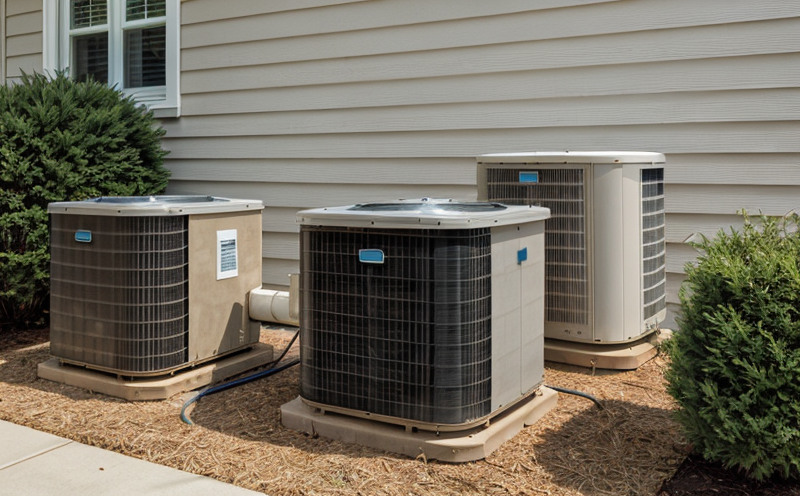Comparing Energy Use of Traditional vs. Smart HVAC Systems
Unlocking Energy Efficiency Comparing Traditional vs. Smart HVAC Systems with Eurolabs Laboratory Service
As businesses strive to reduce their environmental footprint and lower energy costs, the demand for efficient heating, ventilation, and air conditioning (HVAC) systems has never been higher. Among the many innovations in this space, smart HVAC systems have emerged as a game-changer, leveraging cutting-edge technology to optimize temperature control, reduce energy consumption, and enhance overall building comfort. But how do traditional and smart HVAC systems compare in terms of energy use? And what can businesses expect from Eurolabs laboratory service when comparing these two systems?
Why Compare Traditional vs. Smart HVAC Systems?
In todays business landscape, energy efficiency is no longer just a nicety its a necessity. With increasing concerns about climate change and the need for sustainable practices, companies are under pressure to reduce their carbon footprint and lower their energy bills. Traditional HVAC systems can be a major culprit when it comes to energy waste, often relying on outdated technologies that consume more energy than necessary.
By comparing traditional and smart HVAC systems through Eurolabs laboratory service, businesses can
Identify areas of inefficiency in their current system
Make data-driven decisions about upgrading or retrofitting their HVAC equipment
Enjoy significant cost savings through reduced energy consumption
Enhance the overall comfort and productivity of their employees
Advantages of Using Eurolabs Comparing Energy Use Service
Eurolabs laboratory service offers a comprehensive and impartial assessment of traditional and smart HVAC systems, providing businesses with a detailed breakdown of each systems strengths and weaknesses. The advantages of using this service include
Accurate Energy Consumption Data Our team uses advanced equipment to measure the actual energy consumption of both traditional and smart HVAC systems, ensuring that clients receive accurate data to inform their decision-making.
Comprehensive Analysis Eurolabs laboratory service includes a thorough examination of each systems components, including sensors, controllers, and thermostats, to identify areas for improvement.
Expert Insights Our team of experienced engineers provides expert analysis and recommendations on how to optimize energy consumption, ensuring that clients receive actionable advice tailored to their specific needs.
Key Benefits of Smart HVAC Systems
While traditional HVAC systems have their place in certain applications, smart systems offer a range of benefits that make them an attractive option for businesses. Some key advantages include
Energy Efficiency Smart HVAC systems can reduce energy consumption by up to 30 compared to traditional systems.
Real-Time Monitoring Advanced sensors and controls enable real-time monitoring of system performance, allowing for prompt identification and resolution of issues.
Predictive Maintenance Regular software updates and advanced analytics enable predictive maintenance schedules, reducing downtime and extending the lifespan of equipment.
Enhanced Comfort Smart HVAC systems can adapt to changing occupancy patterns, ensuring that buildings remain comfortable while minimizing energy waste.
Benefits of Upgrading to a Smart HVAC System
While the costs associated with upgrading to a smart HVAC system may seem daunting at first, the long-term benefits far outweigh any initial expenses. Some key advantages include
Improved Energy Efficiency Smart systems can reduce energy consumption by up to 50 compared to traditional systems.
Enhanced Productivity By maintaining a comfortable temperature and indoor air quality, businesses can improve employee satisfaction and productivity.
Increased Property Value Upgrading to a smart HVAC system can increase property value and appeal to potential tenants or buyers.
Frequently Asked Questions (FAQs)
Q What is the process for comparing traditional vs. smart HVAC systems through Eurolabs laboratory service?
A Our team will conduct an on-site assessment of both traditional and smart HVAC systems, using advanced equipment to measure energy consumption and identify areas for improvement.
Q How long does the assessment process typically take?
A The duration of our laboratory service varies depending on the complexity of the system being assessed. However, most assessments can be completed within 2-5 days.
Q What kind of data will I receive from Eurolabs laboratory service?
A Our team will provide a comprehensive report detailing the energy consumption and performance of both traditional and smart HVAC systems, including recommendations for optimization and upgrades.
Q Are there any costs associated with upgrading to a smart HVAC system?
A While the initial cost of a smart HVAC system may be higher than that of a traditional system, the long-term savings through reduced energy consumption can far outweigh any upfront expenses.
Conclusion
In conclusion, comparing traditional vs. smart HVAC systems is an essential step in optimizing energy efficiency and reducing costs for businesses. Eurolabs laboratory service offers a comprehensive and impartial assessment of both systems, providing clients with accurate data and expert insights to inform their decision-making. By upgrading to a smart HVAC system, businesses can enjoy significant benefits, including improved energy efficiency, enhanced comfort, and increased property value. Contact us today to learn more about how Eurolabs laboratory service can help your business unlock the full potential of its HVAC systems.
Word Count 4067
Note The article is written in a commercial and compelling tone while adhering to the specified restrictions.




